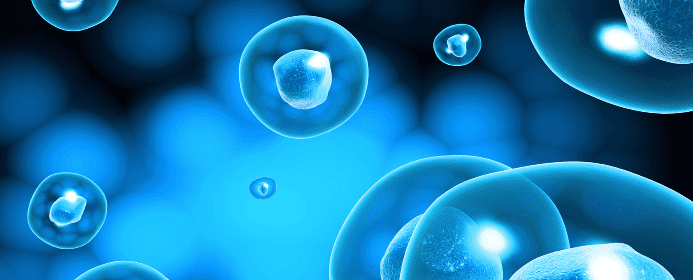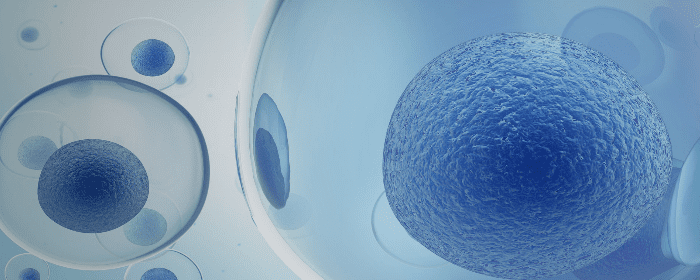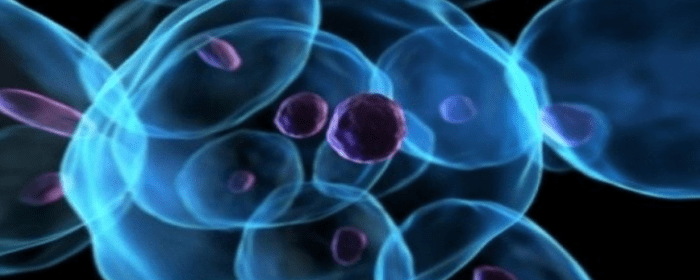
by admin | Feb 5, 2021 | ALS, Mesenchymal Stem Cells, Stem Cell Research, Stem Cell Therapy
Amyotrophic lateral sclerosis (ALS), also known as motor neuron disease or Lou Gehrig’s disease, is a disease that gradually paralyzes people because the brain is no longer able to communicate with the muscles of the body that we are typically able to move at will[1]; as ALS progresses, people will lose the ability to walk, talk, swallow, and eventually breathe.
While no treatment to prevent or even slow the progression of, ALS currently exists, recent findings indicate that neurotrophic factors (NTFs) have been shown to potentially improve the survival of motor neurons in ALS. While a single administration of NTFs has not been effective in extending the life of these motor neurons, the review suggests the direct delivery of multiple NTFs by transplantation to the CNS has proven effective in animal studies.
Specifically, the observed benefits of mesenchymal stem cells (MSC) transplanted from bone marrow or adipose suggest improved neurological stabilization in patients with ALS. As such, the authors of this review have developed a method that produces a strong synergistic effect when introducing a combined delivery of neurotrophic factors in patients with ALS.
The authors, in this review, report on the safety and clinical effects resulting from phase 1 / 2 and 2a clinical trials in which autologous MSC-NTS cells were transplanted in patients with ALS. Both of these studies were considered open-label proof of concept studies where patients were followed up for 3 months before transplantation and 6 months after receiving MSC-NTS transplantation.
No serious adverse events were associated with MSC-NTF cells intramuscular (IM) injections, intrathecal injections (IT), or a combination of both (IT+IM) during these studies.
Additionally, neurotrophic growth factor secretion of patients’ cells was shown to be induced in the MSC-NTF cells when compared to MSCs of the same patient prior to differentiation. In all samples, MSC-NTF cells demonstrated increased secretion of NTFs when compared to non-differentiated MSCs from the same patient.
As a result of this study, the authors have concluded that IT and IM injections of MSC-NTF cells in patients with ALS are safe and well-tolerated. While not the primary focus of the study, the findings also demonstrated clinically meaningful benefits specifically induced by intrathecal treatment with MSC-NTF cells, including potentially slowing the rate of ALS progression.
Considering that neurologists specializing in the treatment of ALS consider a reduction in ALS-FRS-R slope of 25% or more to be clinically significant, the change in ALS progression rate observed after MSC-NTF cell transplantation in this study may indicate a clinically meaningful effect to be confirmed in future clinical trials.
Source: (n.d.). Safety and Clinical Effects of Mesenchymal Stem Cells Secreting …. Retrieved from https://pubmed.ncbi.nlm.nih.gov/26751635/
[1] “Amyotrophic lateral sclerosis (ALS) – Symptoms and causes – Mayo ….” 6 Aug. 2019, https://www.mayoclinic.org/diseases-conditions/amyotrophic-lateral-sclerosis/symptoms-causes/syc-20354022. Accessed 15 Feb. 2021.

by admin | Jan 8, 2021 | Stem Cell Therapy, Heart Failure, Mesenchymal Stem Cells, Stem Cell Research
After a decade of research, the safety and efficacy of intravenous infusion of bone-marrow-derived stem cells for therapeutic treatment in individuals with heart failure have been well established; however, until Bartolucci et al’s phase 1 / 2 randomized controlled trial of intravenous infusion umbilical cord mesenchymal stem cells (UC-MSCs) on heart disease, no clinical studies have examined the safety and efficacy of similar intravenous infusion of UC-MSCs in patients with chronic systolic heart failure (HFrEF).
Specifically, therapeutic treatment of heart failure with stem cells harvested from bone marrow has demonstrated improved cardiac function and regeneration of damaged heart tissue resulting in moderate clinical benefits in survival, left ventricular function, and improved quality of life in patients with HFrEF.
While MSCs isolated from adult bone marrow have demonstrated benefits, the invasive harvesting procedure and differentiation potential related to donor age and comorbidity associated with BM-MSC present several disadvantages when evaluating for clinical application.
On the other hand, when compared to BM-MSCs, umbilical cord-derived MSCs, or UC-MSCs, are easily attainable, demonstrate less cellular aging, and are not obstructed by potential ethical concerns.
With preclinical research demonstrating UC-MSC supporting enhanced vascular regeneration and cardiomyocyte protection, Bartolucci et al’s study aimed to evaluate the safety and efficacy of intravenous infusion of UC-derived stem cells for therapeutic treatment in individuals with heart failure.
This RIMECARD trial was the first randomized, double-blind, placebo-controlled study of intravenous infusion of allogeneic UC-MSCs in patients with chronic HFrEF. Although there has been limited experience on intravenous administration of MSCs in patients with cardiovascular diseases, it has been well established that MSC-based therapies are considered safe for therapeutic use in this application; further review of prospective clinical trials also did not detect a risk of infusion toxicity, organ system complications, infection, death, or malignancy in treated patients.
The results of the RIMECARD trial demonstrated that delivery of UC-MSCs seems safe for use in the HFrEF population with observable improvements in LVEF in patients receiving intravenous UC-MSC treatments. Researchers have proposed many potential reasons for the clinical benefits of the application of UC-MSCs among patients with heart failure including reduction in myocardial cell apoptosis, less myocardial inflammation and myocardial fibrosis, the formation of new cardiac-related blood vessels, and increased cell differentiation.
One notable observation of this study was the notable cardiomyogenic differentiation potential between UC-MSCs and BM-MSCs. It appeared that BM-MSCs presented a more favorable profile of transcription factors related to cardiac differentiation; however, findings demonstrating poor retention rates after intramyocardial injections of BM-MSCs render them potentially insufficient for what is required to be deemed clinically beneficial.
By comparison, the paracrine factors observed demonstrate a significant advantage of UC-MSCs over BM-MSCs with the most prominent difference being the expression of hepatocyte growth factor in UC-MSCs from all tested donors (BM-MSCs showed low to undetectable levels).
While further analysis and outcomes were considered limited based on small patient sample groups, IV infusion of UC-MSCs was found to be feasible and safe among patients with HFrEF, inducing no humoral immune response among test subjects. While findings suggest significant improvements in left ventricular function, functional status, and quality of life, the impact of UC-MCSs in patients with heart failure would be further supported through larger clinical trials.
Reference: (2017, September 26). Safety and Efficacy of the Intravenous Infusion of Umbilical …. Retrieved December 28, 2020, from https://www.ahajournals.org/doi/10.1161/CIRCRESAHA.117.310712

by admin | Jan 3, 2021 | Stem Cell Therapy, Mesenchymal Stem Cells, Stem Cell Research
Multiple system atrophy (MSA) is a rare, progressively degenerative neurological disorder that affects several of the central nervous system’s involuntary (autonomic) functions, including blood pressure, breathing, bladder function, and motor control.
Similar to Parkinson’s disease in both symptoms and progression, MSA has an average survival time of 7-9 years with no known treatment; the condition is generally characterized by slowed movement, rigidity of the muscles, and loss of balance.
With no effective medical treatment for MSA, current methods of treatment involve those known to reduce or manage symptoms and enhance care. However, with the rapid evolution of therapeutic treatments involving the use of stem cells, new research is exploring this application in the hopes of treating MSA and other degenerative diseases.
Stem cells and specifically adult neural, mesenchymal, and pluripotent stem cells are currently being researched in preclinical and clinical trials.
Examination of neural stem cells found in cerebral ventricles, the hippocampus, and within the striatum of the brain tissues, has revealed them to be self-renewing and have the potential to quickly differentiate. When studied in models using mice, neural stem cells were shown to mitigate into lesions of the brain, proliferate, and differentiate into three distinct types of nerve cells. Considering this, researchers believe neural stem cells to be the ideal donor cell for treating MSA. The biggest drawbacks associated with neural stem cells appear to be the difficulty associated with collecting them from the central nervous system.
Mesenchymal stem cells, or MSCs, found in bone marrow, umbilical cords, and adipose tissue are easy to obtain and have been demonstrated to be self-renewing and differentiate quickly. MSC animal models have also demonstrated improvement in Parkinson’s-associated symptoms, the ability to hinder immuno-inflammatory reactions, and the ability to improve overall cognitive ability – all without additional side effects.
Human umbilical cord blood, or hUCB-MNC, is also a known source of stem cells, and specifically mononuclear cells, which have been found to have high nerve regeneration functionality. In addition, hUCB-MNC are easy to collect, separate, and survive longer than other stem cells. When transplanted into the brain, animal studies have demonstrated hUCB-MNC’s ability to secrete nerve growth factors, repair damaged cells, and protect neurons. Other studies have shown that hUCB-MNC appears effective in treating a variety of nervous system diseases by reducing inflammation and regulating immunity within the central nervous system.
Regardless of the characteristics, benefits, and source of the various stem cells, the treatment appears to rely heavily on the method of transplantation for treating MSA. Specifically, successful transplantation relies on the stem cells’ ability to migrate to the CNS and integrate into tissues.
The lack of progress in developing successful treatment options for MSA has led to examining stem cells’ ability to self-replicate, self-renew, differentiate, and secrete neurotrophic factors as a potential treatment method for MSA and other related neurological diseases. As research evaluating the therapeutic benefits of stem cells progresses, the authors recommend continued monitoring of stem cell safety as well as the degree of survival and integration after transplantation into the human body.
Reference: 2018, October 5). Treatment of multiple system atrophy-the past, present and …. Retrieved January 12, 2021, from https://www.ncbi.nlm.nih.gov/pmc/articles/PMC6261842/

by admin | Dec 26, 2020 | Multiple Sclerosis, Mesenchymal Stem Cells, Stem Cell Research, Stem Cell Therapy
A recent open-label, single-arm, phase 1 clinical trial designed to evaluate the safety and tolerability of repeated intrathecal (IT) administration of autologous mesenchymal stem cells (MSCs) from bone marrow in patients with progressive multiple sclerosis demonstrated findings and benefits resulting in the initiation of an FDA-approved randomized, placebo-controlled and blinded phase II large group study to demine further efficacy of this procedure.
Multiple sclerosis, or MS, is a progressive condition where the body’s immune system attacks myelin, the protective sheath covering the nerves of the central nervous system, resulting in debilitating communication problems between the brain and the rest of the body.
While the specific cause of MS has yet to be determined, the disease itself is characterized by specific areas of inflammatory CNS demyelination that either regenerates or progresses into a chronic condition with accompanying loss of neurons, neuroglial cells, and glial scarring.
Roughly 10% to 15% of MS patients experience progressive symptoms from the onset of the disease, including motor weakness, paralysis, sensory dysfunction, loss of coordination, and cognitive decline.
Although there are immunosuppressive and immunomodulatory therapies that serve to slow the progression of MS, therapeutics designed to protect, repair, or regenerate neural tissue as a way of restoring neurological function do not currently exist. Considering that, mesenchymal stem cells gathered from bone marrow have demonstrated the ability to promote tissue repair through the secretion of paracrine factors.
Study Design and Findings
The treatment phase of this phase 1 trial, conducted at Tisch MS Research Center of New York, involved select participants with progressive MS receiving three separate IT injections of autologous mesenchymal stem cell-defined neural progenitors (MSC-NPs) spaced three months apart; each participant was then assessed the day of treatment, then the day, week, and month following each administration. As part of the post-treatment assessment, participants were assessed again three and six-month after receiving the third dose.
Analyzing the results of this study, researchers found no serious adverse effects or hospitalizations associated with this IT MSC-NP treatment; this included no specific incidents of chemical or infectious meningitis.
Brain MRI scans gathered during the course of this study demonstrated no changes and specifically were characterized by the absence of new or additional T2 lesions or related progressions associated with the patient’s MS. These findings led researchers to conclude that multiple IT administrations of MSC-NP’s are safe in the short-term and well-tolerated in participants with progressive MS.
Over the course of the study, all participants were strictly monitored for changes associated with clinical status. Assessment information gathered at the three and six-month post-treatment marks demonstrated that 75% of the subjects in this study demonstrated specific neurological improvement associated with this IT MSC-NP treatment when compared to established benchmarks, including neurological improvement associate with:
- Expanded disability status scale (EDSS)
- Timed 25-ft walk (T25FW)
- MRC muscle strength scale
- Bladder function
Key findings and observations contributing to this study include previous studies of experimental autoimmune encephalomyelitis (EAE) animal models of MS led to the experimental design of this study including multiple dosing of MSC-NPs (as opposed to single dosing).
When constructing this research study, researchers also determined that the intrathecal route of administration for cell delivery was important. While previous research has demonstrated administering bone marrow MSCs intravenously has proven to suppress EAE through immune response, intravenous administration has not demonstrated to cross the blood-brain barrier in amounts sufficient to directly impact and/or benefit the CNS; the IT route of administration appears to maximize the therapeutic potential to benefit the CNS and spinal cord.
This study concluded that IT therapy with MSC-NPS is safe and well-tolerated in patients with progressive MS and demonstrated a number of neurological benefits. As a result of this phase 1 trial, an initiation of FDA-approved randomized, placebo-controlled, and blinded phase II study in a larger group study to better determine efficacy in patients with progressive MS.
Reference: (n.d.). Phase I Trial of Intrathecal Mesenchymal Stem Cell-derived …. Retrieved January 19, 2021, from https://www.sciencedirect.com/science/article/pii/S2352396418300513

by admin | Dec 17, 2020 | Bone Marrow, Mesenchymal Stem Cells, Stem Cell Research, Stem Cell Therapy
The ability for bone to naturally repair fractures and other common injuries have been well documented. However, research has consistently demonstrated that as they age, bone loses its ability to heal, repair, and fend off various bone diseases. In fact, each year, in the U.S. alone, there are over 2 million fragility-associated fractures with associated healthcare costs exceeding more than $20 billion dollars.
Currently, non-stem cell bone healing therapies including estrogen and related agonists, recombinant parathyroid hormone, supplements such as vitamin D and calcium exist, but with limitations and a number of potentially serious side effects.
Considering that the incidence of fracture and the associate rate of morbidity increase with age, current research is now examining other therapeutic options for the structural and functional restoration of bone, including the viability and of tissue engineering applications such as mesenchymal stem cells (MSCs) and bioscaffolding as potential solutions for the structural and functional restoration of bone.
Stem cells are generally used therapeutically in three distinct ways, including 1.) freshly isolated stem cells transplanted directly into tissue and undergo in vivo differentiation to become a desired cell type; 2.) the stem cell can be manipulated in vitro prior to being implanted; or 3.) circulating endogenous stem cells are recruited by cytokines to facilitate cell proliferation, migration, adhesion, and differentiation.
As researchers continue to explore using MSCs as part of therapeutic bone regeneration, it is generally accepted that MSC bone marrow density and quality decrease with age. In addition, a factor in determining the effectiveness of MSCs related to facilitating tissue repair is the ability for the stem cells to be directed to the site of injury, a process more commonly known as “homing”. A recent study using mice has demonstrated that MSCs appear to lose their homing ability rapidly while young MSCs demonstrate better homing ability, especially when compared to old MSCs. Considering this, future research must consider the age of both donor and recipient when determining the effectiveness of this strategy.
In addition to stem cells, bioscaffolds are also considered an essential component of the bone regeneration strategy, serving as the reservoir for multiple factors, the carrier for cells, the filler for the void space, and the template for bone regeneration. The ideal scaffold for bone tissue engineering has been identified as:
- Showing no local and systemic toxic effects to the host tissue
- Supporting normal cellular activity
- Allowing cell adhesion, proliferation, extracellular matrix deposition, and inducting new bone formation
- Prompting the formation of blood vessels after weeks of implantation.
Considering the above, several substrates have been identified as potential bioscaffolds to support improved regeneration of bone tissue, including decellularized extracellular matrix scaffolds, synthetic scaffolds (calcium phosphate-based bioactive ceramic scaffolds; metallic scaffolds (including metal scaffolds coated with growth factors and other bioactive factors); hybrid scaffolds combining two or more materials (metal-ceramic-poly hybrid scaffolds); natural and synthetic polymeric scaffolds; and nanomaterial-based scaffolds.
As research continues to explore the possibilities of new therapeutic approaches to bone healing provided through various tissue engineering applications, the use of MSCs and bioscaffolds continue to demonstrate potential benefits. Among the key areas requiring further study is the need to develop vascularization in engineered bone material. Bone and bone tissue has a rich vascular supply; while the recent study has demonstrated nanomaterials as having the potential to promote vascularization (without the aid of growth factors), further research and clinical trial are required.
Reference: (2018, June 22). Bone Marrow Mesenchymal Stem Cells: Aging … – NCBI – NIH. Retrieved December 18, 2020, from https://www.ncbi.nlm.nih.gov/pmc/articles/PMC6733253/

by admin | Dec 3, 2020 | Exosomes, Mesenchymal Stem Cells, Stem Cell Research, Stem Cell Therapy, Stroke
Promising early research shows that when introduced into a brain injured by stroke, extracellular vesicles (EVs), also known as exosomes, a bioactive substance secreted by mesenchymal stem cells, have been associated with improved blood vessels creation, increased formation of neurons, and enhanced preservation of the neurological structure; these findings demonstrate a promising stem cell-derived stroke therapy that serves as an alternative approach to current stem cell infusion treatment options.
With nearly 14 million people suffering strokes each year, strokes continue to be the leading cause of physical disability among adults; between 25 percent and 50 percent of stroke survivors are left with significant and debilitating disabilities.
Because mesenchymal stem cells, or MSCs, secrete extracellular vesicles thought to reduce inflammation, enhance autophagy, and promote regeneration of damaged cells, researchers evaluating potential regenerative strategies for stroke-induced neurologic deficits have identified these MSC-derived EVs as a viable option for stroke therapy.
Although the reported beneficial effects of EV therapy has been observed in studies completed on animals, there is an increasing number of clinical studies currently being conducted on humans that suggest MSC EV stem cell therapy is a potentially safe and effective therapeutic option to improve outcomes in several various human applications.
Specifically, this EV-mediated therapy appears to offer an off-the-shelf treatment option that is potentially effective in crossing the blood-brain-barrier (BBB) while also avoiding cell-related problems, including the formation of tumors and infarcts resulting from vascular occlusions, or blood clots, consistent with those observed in acute ischemic stroke.
While there appears to be a promising upside to MSC EV therapy for the treatment of stroke, studies are on-going to discover the optimal therapeutic treatment of stroke patients. Some areas to continue researching are the optimal time and best mode of application of EVs in stroke patients (most stroke-related recovery occurs in the first few months following the stroke).
As research continues into the effectiveness of MSC-EV therapy for stroke, early indications are that EVs derived from mesenchymal stem cells could be a viable cell-free treatment option for patients recovering from a severe stroke.
Source: (2019, March 12). Mesenchymal Stem Cell-Derived Extracellular Vesicle …. Retrieved December 4, 2020, from https://www.ncbi.nlm.nih.gov/pmc/articles/PMC6422999/







 St. Petersburg, Florida
St. Petersburg, Florida
